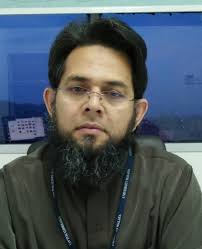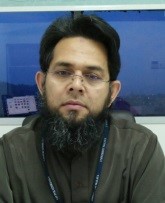2012-09-24 21:24:28
 |
Indeed it is a wonderful dream (if I may put it that way) to produce 1000 PhD every year in Bangladesh. And Dr. Zafar Iqbal made it clear how easy it is (Prothom Alo, 6 June 2011). Only 100 crore Taka out of 30 thousand crores of the annual budget (the year 2010) of the country is enough to produce 1000 PhD every year. That optimistic dream is beyond criticism, in every way possible, and everyone should make an effort to make that dream comes true. In the effort to do so, considering the following issues might help all universities to initiate their own action plans instead of looking forward for the Government to allocate 100 crore taka to achieve that goal.
Unreasonable costs/expenditure by Public universities: During my short service in one of the public universities in Bangladesh I observed that things/goods purchased by public universities in Bangladesh are unreasonably overpriced. Even the purchasing of papers for examinations or for daily stationeries such as pen for the lecturers would cost double or triple the retail market price. Instruments and chemicals or reagents are even costlier. Let me give an example of purchasing a thermocycler by that public university. Accidentally (I would prefer to put it in that way), I was given the responsibility to check the material/equipment supplied to that public university. I found that the supplier not only took at least three times the retail price but also did not supply as was specified in the quotation. In the end, the university authority had to bring another person to ‘accept’ that instrument which eventually got through. In another occasion, I was part of a committee to scrutinize the instrument purchase quotations. Despite the protest from two members, the department agreed to give the purchase order to a supplier who not only quoted (and supplied) the worst possible quality of the instrument but also took at least six times more than the actual cost of the instrument. Needless to say, in a few months time, those instruments became useless! Being in an authoritative position at a university, Dr Iqbal may try to find why such wastes come about and perhaps find a solution for it. That amount of waste every year, I guess, would be enough to provide support for more than one PhD student if not for 1000.
Flexible policy for PhD admission: I believe there are thousands if not millions in Bangladesh who are interested to pursue higher education leading to MPhil or PhD yet having a full-time job. Wouldn’t it be easier to make their aspiration a reality if (i) they would be required to pay minimal/no tuition fees, (ii) flexibility in credit loads and (iii) better options to choose a mentor/supervisor? The first two points do not require detailed elaboration as they are self-explanatory. Besides, if not entirely, those are partly in place. Yet I believe, minimum or no tuition fees could come from the university. Flexibility in credit loads such as flexible time period to finish the degree for the part-time students would eliminate the fear of getting terminated without securing the degree. The last point might appear controversial and requires an explanation of what I meant. Due to several reasons, such as lenient policy of appointment and promotion such as restructuring, lowest possible requirement for promotion compared to other countries, and above all the use of ‘political affiliation’, have produced a significant number of professors working in different public universities who have proven their inability to initiate novel research projects, let alone mentoring/supervising PhD student. That at the very least partially inhibits potential PhD applicants to pursue their training under those unqualified professors (in terms of advance research). Again, finding the reasons why and how to entice more qualified professors who would be more dedicated to effective research rather than swirling up political issues/movements in Bangladesh might be a help.
Replace ‘forced brain drain’ with ‘brain regain and reload’: Opportunities for jobs or higher education is terribly scanty in Bangladesh compared to the number of passing out university graduates every year. Therefore, not surprisingly, many try to go abroad either for better education or for a better life. Some succeed to have the opportunity to go abroad to have their higher education either by means of self-sponsorship or scholarship from abroad. Generally, most would not come back. I am one of those good examples and perhaps Dr. Iqbal himself was also one of them who returned to Bangladesh 12 years after obtaining the PhD. On top of this trend, Bangladesh has another form of ‘forced brain drain’. In the name of gaining experience with advanced science and technology, the Bangladesh Government on various occasions opened opportunities for Bangladeshi citizens to study abroad on a government scholarship, mainly to developed countries under higher education program. On average, 70 000-90 000 taka is spent per month for each individual while pursuing the PhD.
You may do the mathematics to sum up the total cost for one individual to complete the degree in three to four years. While you are doing the math on counting the number of citizens who could get PhD with that money if they were asked to pursue their degree in Bangladesh, I want to highlight the ‘actions’ and ‘contributions’ of those who join their position in Bangladesh after completing their PhD in abroad. Indeed that count would pacify Dr. Iqbal’s “jealous mind”.
I am confident that after reading what I am writing now, many of you will argue on the need to send Bangladeshi citizens abroad to gain “advance” knowledge. While arguing you may survey on what I am writing here. For those returning Bangladesh with PhD (not applicable to everybody) are seemed to contribute the country in the following ways: (i) add more ‘Dr.’ on the list of personnel of the respective institutes, (ii) accelerate the promotion exercise, (iii) write new proposals to implement what they have learned (iv) monitor the implementation of their proposals, (v) correctly identify the limitations to implement their proposals (vi) sit back and relax since there is no solution to overcome those limitations and (vi) look for another opportunity to go abroad, such as finding post-doctoral positions. The lucky ones, who get postdoctoral positions in foreign universities, would be happy to work in person in the laboratory as required, even day and night. However, they would not do the same in their office in Bangladesh. In Bangladesh, they are the higher authority responsible for policy making not for ‘working’ in person. Moreover, what they have done spending the money of the poor people, all belong to others.
Now coming back to the point of ‘brain regain and reload’, I would favour the way to bring back those PhDs home who are interested to get a suitable position in Bangladesh. Moreover, it might be more useful to train the PhDs at home rather than sending them abroad while the cost of one individual would produce four/five PhD. If anyone still argues by raising the issue of importing advanced technology from abroad by ‘sending’ to western countries, please take lessons from what India and China did or still doing. And if more Drs would return, they might find creative research projects to study the glorious life of Sheikh Mujibur Rahman or predicament of poor farmers or rickshaw pullers struggling for their daily life.
EndNote: Let us imagine that for some reasons, the Bangladesh Government have allocated 100 crore taka to start a PhD training program to produce 1000 PhDs. Would there be any exploitation of political lobbying to share the amount? Or, would there be any assurance of having 1000 eligible candidates enrolled for the said PhD? Or, would potential applicants start looking for political connections to grab the opportunity? I believe, Dr. Iqbal might have outlined the model of implementing it.


